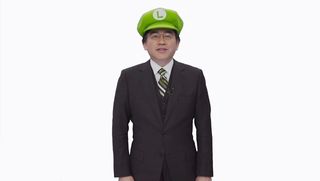More and more these days I find myself debating who E3 really benefits. As I do, I’m finding less and less names on the list. It strikes me that the show now feels like something that happens because it’s a traditional staple of the industry calendar rather than something that’s genuinely necessary. E3 was, after all, cemented long before the internet became the powerful and versatile force for communication that it is today, and as such it seems increasingly outdated.
The core problem for me is that E3 is an intensive scrum, with every element of the games industry fighting for media attention over a very short period of time. There’s no way in Hell that even the biggest press team can give every game and developer--however big or small, but particularly the latter--the coverage it came to the show for in the first place. As such, the platform holders and mega-corp publishers get the lion’s share of attention, if only because the products on show from those guys are inherently going to be the guaranteed big-hitters in terms of web traffic.

Thus we have an ironic and not entirely healthy situation where what should be a huge, eclectic celebration of the wide-ranging output and innovation of the games industry becomes simply another stage for the high-budgeted mainstream stuff that was always going to get the biggest slice of the publicity pie anyway. A lot of the guys and girls who really need a platform like E3 get lost in the fray, and might as well not be there at all.
You can see increasing evidence of the fallout from this problem in the groundswell of other events that are springing up every year. Events like the various flavours of PAX and this year’s Horizon to game-makers' own Gamers Days are cropping up all the time to satisfy the needs that E3--for all of its reputation as the ultimate games event--fails to supply. The fact that Horizon is billed as “an alternative to what we've come to expect from standard E3 fare” sums up rather succinctly the gulf of irony between E3’s purpose and what it actually delivers.

And even being one of those behemoth publishers doesn’t put the exhibitor in an inherently great position. The increasing focus on “Who won E3?” rather than “What cool stuff was at E3?” turns their events into a combined arms race and turf war, with only one company ‘allowed’ to be victorious while the others are implicitly branded as losers and bashed for months on the internet regardless of the individual merits of their presentations. It’s a ridiculously black-and-white approach to what should be a celebration of diversity in gaming, and it's almost certainly the reason that big games and console reveals are increasingly happening via separate, more controlled webcasts these days. That treatment is just better for everyone.

Yes, having a games event that attracts the entire world’s mainstream press is theoretically a good thing, but with E3 being such an overblown circus, the problem of focusing on the biggest, loudest guns is even worse in the mainstream media. And on the years that AAA doesn’t present itself well (as I felt was the case last year), that’s an awful lot of tar from the same brush covering a whole lot of developers in the eyes of the casual wider audience.
Focused, game and developer-specific coverage, delivered online and on-console. That’s a much clearer and more democratic way to get announcements out. Let Nintendo Direct lead the way."
Looking for a second opinion? Here is UK editor Justin Towell's take on whether E3 is still relevant.

